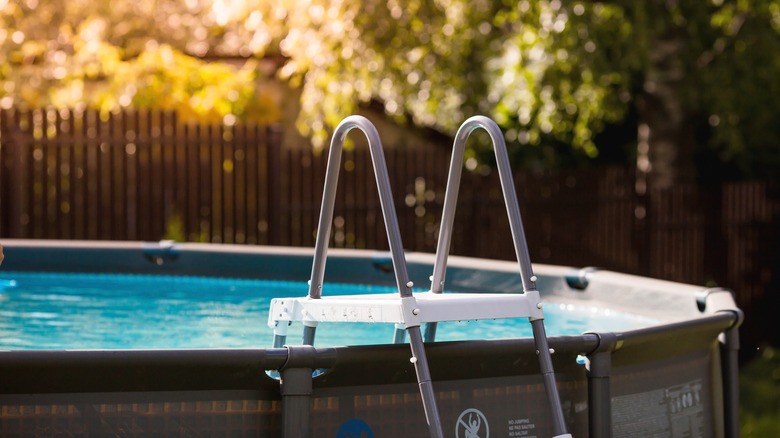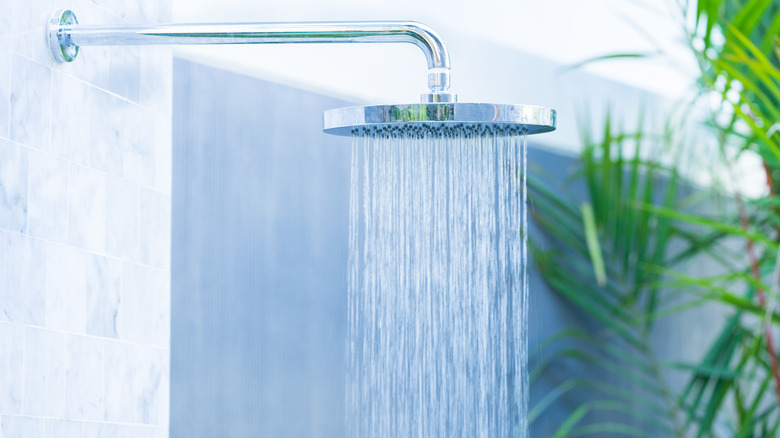How To Protect Your Skin From Pool Chlorine
Nowadays, it's hard to find a pool that isn't treated with chlorine, which is incorporated into the water to get rid of harmful bacteria and other germs, as explained by the Centers for Disease Control and Prevention. Once mixed with water, chlorine targets the cells of microorganisms, breaking them down and preventing them from causing harm, as per How Stuff Works.
While chlorine goes a long way in reducing the transmission of disease that can come with sharing a pool with others, it can cause unpleasant issues when it comes into contact with our skin, according to the Dermatology & Cutaneous Surgery Institute. Essentially, the chemical destroys the natural oils found on our skin that work to protect it and keep it hydrated. The consequence of this is dry skin, which can become itchy in the best of cases and develop a rash in more extreme cases. Depending on the concentration of chlorine in the water, the skin can also sprout painful blisters when submerged for long periods of time.
If you're worried about prolonged exposure to chlorine and its effect on your skin, the good news is that there are ways you can protect yourself.
Preparation and post-swim cleaning are key
Healthline spoke with Olympic swimmer Ryan Murphy about how he keeps his skin protected while dealing with atopic dermatitis, a type of eczema that is especially aggravated by the chlorine found in pools, leading to painful skin lesions that can become infected with prolonged exposure. To stay comfortable while competing and avoid further inflammation, Murphy keeps his skin well-moisturized and only uses soft towels that won't exasperate his condition, which anyone can do, Olympic swimmer or not. The moisturizer works to enhance the natural barrier of the skin, avoiding direct irritation from the chemically treated water.
Another pointer Allure provides for avoiding chlorine-related skin issues is to make sure you immediately rinse off the pool water with fresh, non-chlorinated water once you are done swimming. If possible, you should also use a non-aggravating soap or cleanser to ensure the chemicals are completely washed away. Following the shower, don't forget to moisturize your skin to restore hydration. Areas that require the most attention are those that feature thinner skin, such as your chest, elbows, and under the eyes.
In the case that you do notice a rash from the chlorine, which can consist of redness, sensitivity, or open wounds, WebMD recommends removing yourself immediately from the pool and washing the area with clean water. You may also need to consult with a doctor for a prescription for a topical corticosteroid to allow the rash to clear up.


